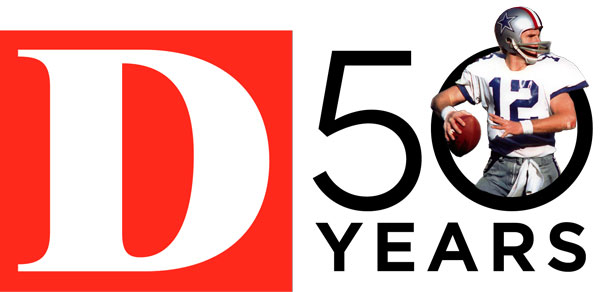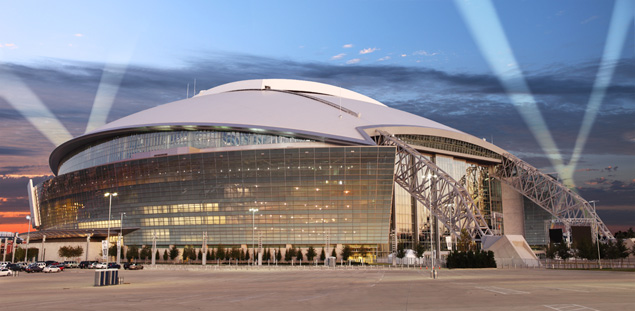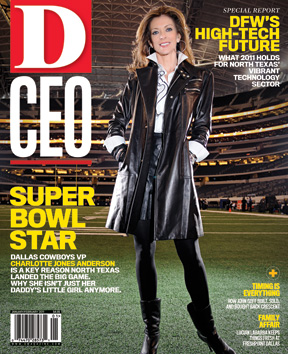Who says government doesn’t work and sports don’t pay? In Arlington, they’re crushing the conventional wisdom and showing that can-do cities still can.In less than a decade, Arlington leaders have rewritten a sorry storyline. New building and resurgence overshadow decay and decline. Community pride has replaced disappointment. And a unique identity is emerging, something that stands apart and still fits in the heart of North Texas.
One newspaper called Arlington “Title Town,” and with last fall’s World Series and February’s Super Bowl, it’s the center of the sports universe. The city still wrestles with poverty, high dropout rates, old apartments, and potholes. It remains a first-ring suburb, after all. But a revival can already be measured, even in this economy, and the sky-high intangibles should give hope to any city.
If Arlington can seize the moment—act boldly, execute well, and protect its backside—so can others. That’s my favorite takeaway from Arlington’s budding turnaround: Swing for the fences, and you just might connect.
Arlington’s moment of truth came in 2004, when city leaders and residents made a $325 million bet on Jerry Jones and his dream of a new Cowboys Stadium. Then Jones spent $1.2 billion for a spectacular facility that drew raves.
The stadium has already landed a Super Bowl, NBA All-Star Game, NCAA Final Four, championship boxing, and big-name college match-ups.When there’s not a game, the place is buzzing with business meetings, fundraisers, concerts, and tours. Throw in hundreds of millions of dollars in road improvements, too, because pro football’s arrival accelerated that construction.
How’s that for a stimulus plan during the worst economy in 60 years?
Even without a recession, Arlington had reason to overreach for the Cowboys, and maybe overpay. It needed an economic Hail Mary.
In the early 2000s, Arlington was the laggard of North Texas. City staffers compared its economy with the nine largest cities here, and Arlington ranked first in poverty growth and last in home value appreciation. Median income growth was next to last, and every other city had a higher taxable value per person.
No single project, not even Cowboys Stadium, could lift the entire economy. But it provided a spark at an opportune time and inspired the city to keep stretching.
“It was the turning point,” says Arlington Mayor Robert Cluck, who spearheaded the Cowboys’ recruitment. “As soon as the stadium opened, we could see the spike in sales taxes. And the whole mood of the city changed.”
In 2009, when the stadium opened and the recession whacked Texas, Arlington’s sales taxes declined 2 percent, according to the state comptroller. That was a good showing. In Dallas, Fort Worth, Grapevine, and Southlake, the declines were four to six times larger.
A year later, through the first 11 months of 2010, Arlington’s sale taxes rose 2.7 percent. That trailed Grapevine and Southlake, but it was better than Dallas and Fort Worth. In Irving, where the Cowboys used to play, sales taxes fell 5.3 percent, and the statewide average for more than 1,100 cities was slightly negative.
Arlington also added more than 3,300 jobs from October 2009 to September 2010. Not bad in a jobless recovery.
The city’s entertainment district, which includes Six Flags Over Texas, adds a retail driver to the local economy. But some residents have always criticized public funding for stadiums—for the Rangers Ballpark in the 1990s and the Cowboys a decade later. Cluck says the most strident opposition has melted away in the last year. Maybe that’s because national broadcasts regularly fawn over the stadium and nearby surroundings, and the Texas Rangers finally made it to the World Series.
The University of Texas at Arlington feels an impact, and it’s already an economic force in the city. These would be heady days for the university anyway, because it’s expanding, pursuing Tier One status, and setting enrollment records. But its big push came in the past decade, coinciding with the Cowboys’ arrival. “The stadium has rubbed off on us,” says James Spaniolo, UT-Arlington’s president.
The public-private partnership with Jones inspired other deals. The Arlington Highlands, an outdoor shopping mall, has lifted retail. Downtown businesses formed an improvement district to spur development. And UT-Arlington and the city teamed up on College Park, an $80 million project with residence halls, retailers, a parking structure, and green space.
“There’s a spirit that we can do great things together,” Spaniolo says.
For years, the region’s big players have talked about the potential of true collaboration. The Super Bowl demanded that—in bidding for the game and pulling it off. That success raises hopes about working together on higher education, research, mass transit, and more.
Give Arlington credit. By landing Cowboys Stadium, it rebalanced power geographically, keeping it from tilting too far toward Dallas. That ensured a bigger stake for all.
It’s no accident that, even with the big game in Arlington, Super Bowl teams are staying in Fort Worth and Las Colinas, and the NFL Experience is happening in Dallas. Spreading the wealth keeps everybody happy and shows off the best of North Texas.
And Arlington has no complaints. It’s in the middle of the conversation, with a great narrative.
Mitchell Schnurman is the business columnist for the Fort Worth Star-Telegram. For the past five years, his column has been named the “Best in Business” by the Society of American Business Editors and Writers






